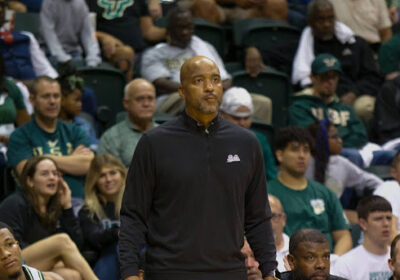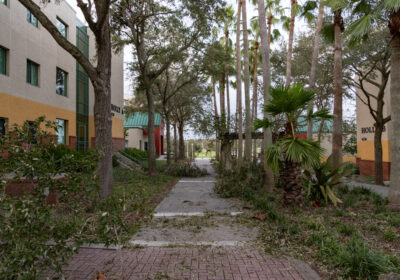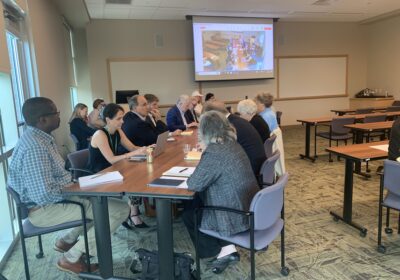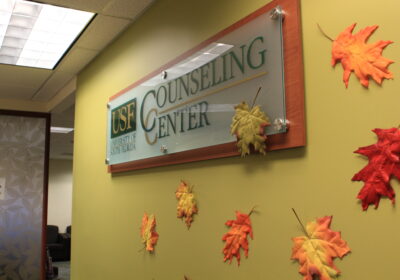Matching Grants Research Program gives 60 USF students funding for advancements in many disciplines
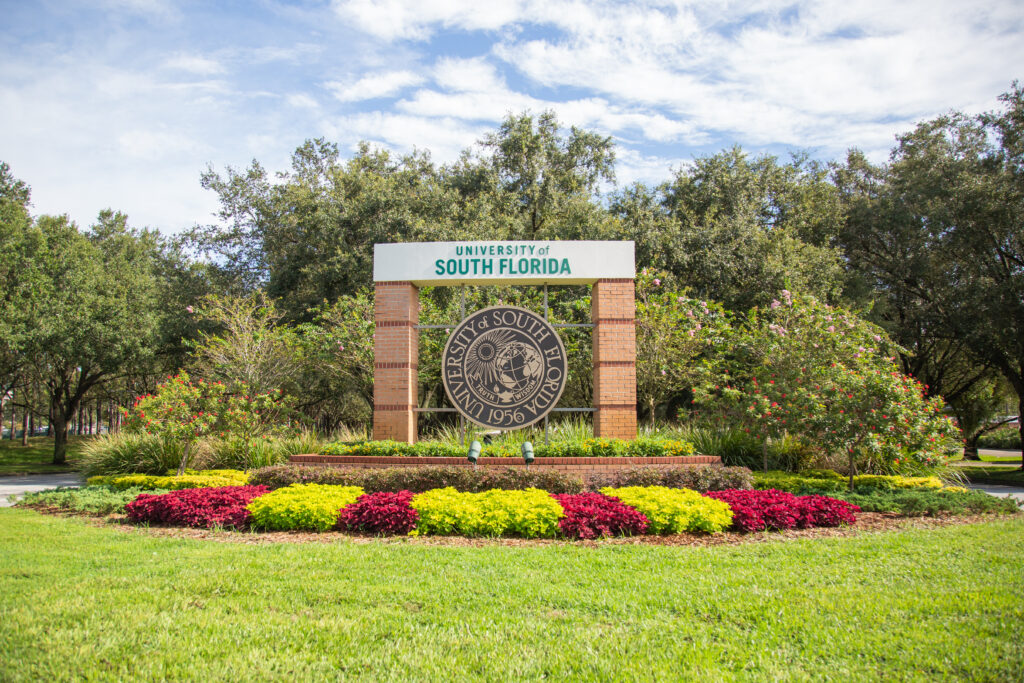
Neha Arora, a postdoc researcher in the Patel College of Global Sustainability, was able to push the boundaries of her research with algae growth through the help of the Florida High Tech Corridor’s Matching Grants Research Program (MGRP).
Arora was just one of 60 researchers to be a part of the program this year, and it allowed her to partner with a company to assist in the development of a bioreactor in USF’s very own botanical gardens.
The program allows selected researchers to extend the scope and boundaries of their projects through partnerships and funding, helping to advance important findings that the university is working toward.
The Florida High Tech Corridor’s MGRP prioritizes funding for projects that provide high-level, hands-on research experiences for university students that generate new intellectual property or technology. It assists researchers at UCF, UF and USF.
The program provides grant matching for all types of research, from Alzheimer’s research to technological breakthroughs, and USF can match up to $150,000 for each project.
Arora said the program provided an initial start-up grant from the private sector (Culture Biosystems) of $31,257. She also received an equal amount as match from the Florida High Tech Corridor’s Program so she could partner with Culture Biosystems, a technology developer with an advanced cultivation platform which enables large-scale production of algae to be used in producing biofuels, aviation fuels, feed, protein and nutraceuticals.
Her research consists of making a cost-effective horizontal bioreactor, which will essentially grow algae in an artificial, temperature-controlled environment. The research team wanted to see if cost-effective designs are just as good as costly designs by comparing how much algae each design produced as well as the quality of the algae.
“We had to develop automated and modular photobioreactors which were cost-effective, not just in terms of building the structure but also in terms of the water and energy use,” she said.
“We have that set up at the USF Botanical Gardens, and it is 140 liters, so we operate that and grow marine algae biomass. The biomass that we collect goes to the aquaculture industry we [partnered with], and they feed it to fishes and see the effect on the growth and nutrient quality.”
She said her next steps include applying for another grant to expand their research on algae biomass.
“We applied for a Phase II grant that gives us an opportunity to expand this on bigger systems so we can start producing a small amount of algal biomass at a cost-effective price, and we are waiting to hear the results somewhere around July or August.”
Along with Arora, Priyanka Bhatt, whose research is on developing nanoformulations of Ayurvedic herbal drugs, was also selected for the grant matching program. She said her goal is to develop therapeutic treatment options that are effective enough and at the same time reduce side effects for chronic diseases.
She is currently pursuing her postdoc in assistant professor in the Department of Pharmaceutical Science Vijaykumar Sutariya’s lab, and they are working on ocular drug delivery on novel nanocarrier strategies to combat age-related macular degeneration.
Bhatt said she heard the MGRP was very competitive and she and her team underwent a very long process to be selected. Though she wasn’t sure the amount of money the team was awarded, she said she’s most thankful the grant is able to sustain their research.
“The Healthcare Research Services will put in some money, and the Florida High Tech Corridor will match that money, and it will be used for this research project,” Bhatt said.
“They also generate some of the employment for students and postdocs like me. At the same time, they help small businesses to grow, to patent their new technologies and go toward the commercialization of the new technology, so it has been very helpful.”
Bhatt said her next steps include making some formulation such as a nanoformulation that can increase patient compliance and give comfort to them, which is something she wants to achieve with her research.
Kristie Labib, an undergraduate in Joseph Walton’s lab on pharmaceutical and therapeutic methods at alleviating tinnitus symptoms, said although she wasn’t informed of the grant’s amount as an undergraduate researcher, the program opened doors for her because of its ability to support her involvement in the project.
“Research is one of my passions,” she said. “My grandmother was big into research in Egypt, that was her career, and my mom also loved research. It was very nice to realize my passion is research and that it ran in our family.”
With Cognosetta, a company that explores different drugs for all kinds of hearing disorders, Labib and the rest of the team are focusing on exploring and trying to find a cure for tinnitus.
“The project we were working on with Cognosetta is about looking at a potential ion channel opener that could essentially suppress symptoms of tinnitus,” Labib said.
“We were looking at hearing sensitivity and trying to see if we can increase hearing sensitivity and if that can lead to the suppressing of tinnitus symptoms because tinnitus occurs when hearing sensitivity decreases.”
Labib said she is very thankful to USF and the Florida High Tech Corridor’s for her journey with research because it ultimately inspired her to pursue it in medical school as well.
“I’m going to USF for medical school next month, which is incredibly exciting,” she said. “USF as a whole was incredible, but the research really inspired me to pursue research in medical school, so the fact that I get to do it here at USF is amazing, and I feel like they’re kind of finishing what they started with me and I am excited to see what I can do here.”
With many years of experience, Bhatt said she appreciates the MGRP for ultimately giving her an opportunity to learn many things within her research and taking an interest in her work.
“I want to give a note of thanks to the Florida High Tech Corridor’s Matching Grants Research Program because I got an opportunity to work as a postdoc and I have been a postdoc for the past three and a half years, and I have learned a lot of things,” she said.
“They make sure you are focused on your goal and take a deep interest in your research, so I am delighted I am a part of this project.”

